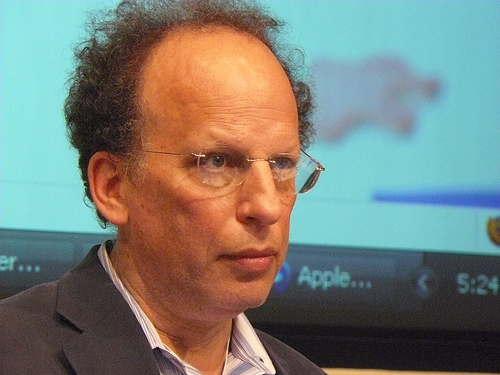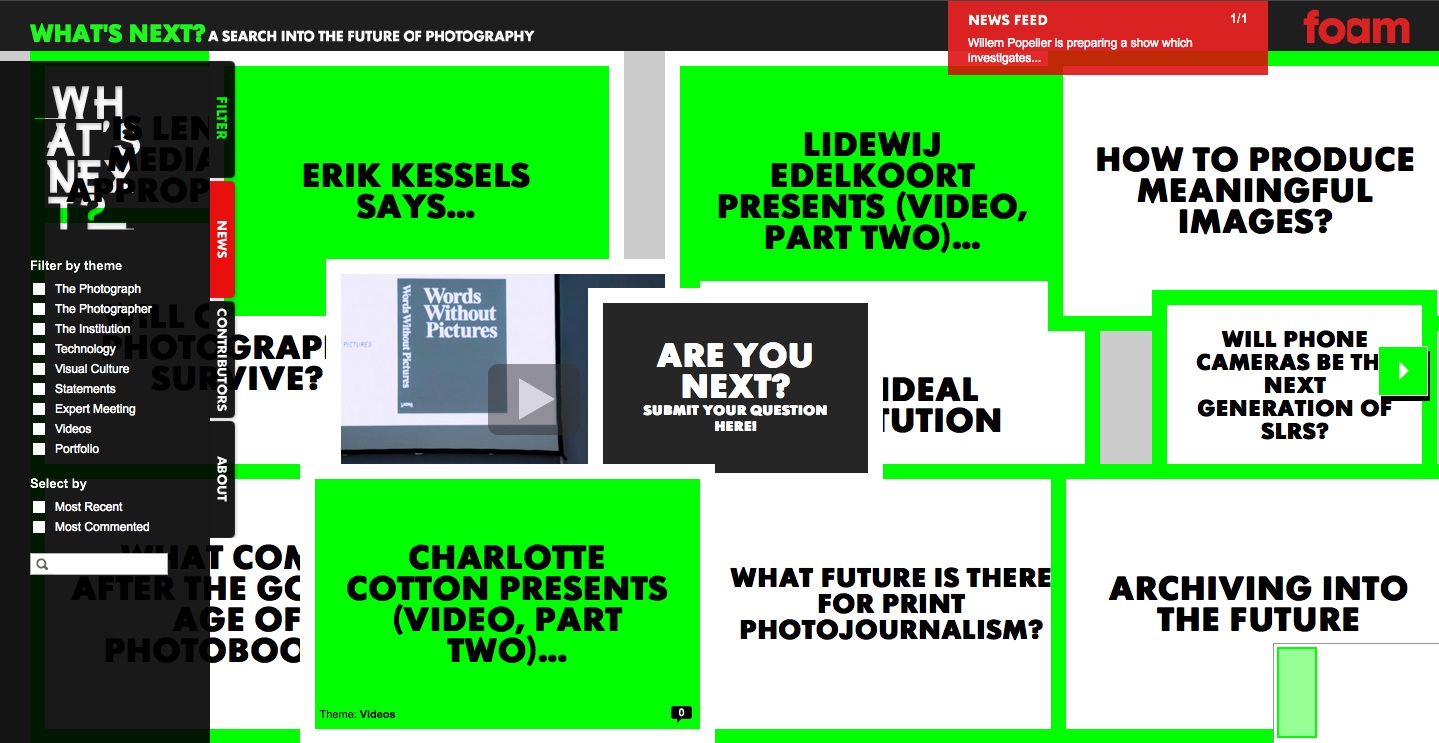I've just written a piece for the magazine European Photography in which I touch on the lack of substantial online discussion on current trends in photography and where things are going. I'll be posting the piece on eyecurious soon, so I won't go into detail here, but in general my feeling is that although online activity on photography is growing by the day, it is becoming commensurately shallower as a result. Fortunately there are examples which buck the trend. Foam, the Amsterdam photo-museum, has recently added What's Next? to its expanding range of content. What's Next? is a supplement to Foam's quarterly magazine but also an online discussion forum which is designed to spark discussion on current trends and how they are affecting the development of photography. The museum recently organised an expert meeting in Amsterdam around the What's Next project with an impressive line-up including Charlotte Cotton, Fred Ritchin, Thomas Ruff, Joachim Schmid and many others (you can see a number of the presentations from the meeting on Foam's youtube channel). Although the design of the site messes with my eyes and head a little bit, there is some terrific content on here running from photobooks to photojournalism. As a blogger I find that the most satisfying experiences writing online are those which spark a discussion, debate or even an argument. If you are interested in any of the above, I highly recommend a visit to What's Next?
Photography has died (again)
 A couple of weeks ago I attended a talk at the American University of Paris given by Fred Ritchin, the author of After Photography, who has been thinking and writing about the future of photography in the digital age for longer than most people. The session was tantalisingly entitled Photography and human rights, but mercifully it was far more interesting than the title suggests.
A couple of weeks ago I attended a talk at the American University of Paris given by Fred Ritchin, the author of After Photography, who has been thinking and writing about the future of photography in the digital age for longer than most people. The session was tantalisingly entitled Photography and human rights, but mercifully it was far more interesting than the title suggests.
His talk (given in total darkness so that we could see the slide show that he had prepared), was much like the man's career: it darted off in several directions at once, with ideas constantly being eaten up by new ones. While I did will him to slow down on more than one occasion, his rapid-fire thought-process is fascinating and the quantity of ideas that get thrown at you at once are in keeping with Ritchin's message that we need to wake up and smell the digitally enhanced coffee.
In his view (one which I share) slick, glossy photo-journalism is antiquated and only has a minuscule impact on the contemporary audience. In recent times it has been replaced by 'citizen photo-journalists' taking photos with whatever cameras they have to done. Somewhat strangely, poor quality, pixelated, uncomposed images have become a mark of authenticity, some kind of indication of a raw truthfulness. In the era of reality TV we want images made by insiders not outsiders, no matter how good the latter are.
Ritchin's central thesis is that we are lagging way behind technological innovation in terms of the way we use photography to address issues of human rights and more broadly issues of sustainable development. He illustrated this idea by a number of image-related tools (not all of them photographic), which Ritchin sees as having huge, virtually untapped potential: Google's Street View, Photosketch, Photosynth, etc. One great example of the use of technological innovation to make photography do something completely new and actually useful is the Extreme Ice Survey, a project that provides visual proof of how the glaciers are melting using time lapse photography.
I had to keep stopping myself from thinking about Ritchin's propositions in the context of fine art photography, which is where I spend most of my photographic time, because these are ideas that are centred around press or, more loosely, documentary photography.
Overall, while I don't agree with Ritchin's doom-mongering message that press photography is all but dead, I think he is right in his provocative call for shaking things up and, more importantly, for making use of the amazing technology that already exists. This applies far beyond the realm of photography to much of web 2.0's innovations, particularly to social networking. If we could get Facebook to be about more than looking at drunken photos of college frat parties or throwing virtual sheep at each other, it could potentially make some kind of difference.
Further reading: for some reasons why photography may not be entirely dead, try reading these Asian photographers' answers to the question, "Why photography now?"
